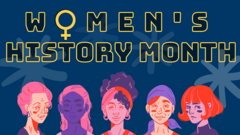Get a minor in Medical Sociology!
Program Description
The Department of Humanities and Social Sciences offers a Medical Sociology Minor as a supplement to the Oregon Tech technical and applied degrees related to health, health care, management and social science. The minor offers courses covering the central topics of medical sociology, including the social factors in health and illness, the patient experience of illness, the role of health care professionals, and the interaction between health and society. The minor provides education on health inequality and cultural competency, as well as basic methods in demography used to analyze the health and behavior of large populations. Students learn about the interpersonal dynamics of health and health care, as well as broad trends in health and health inequality on a global level. The central goal of the Medical Sociology Minor is to serve students from all majors by enhancing their understandings of health and wellbeing in society.
Career Opportunities
The Medical Sociology Minor is designed with the current employer demands and changes in health care organization in mind. Many employers within the health care field seek employees who are culturally competent, prepared to work with diverse populations, and demonstrate leadership and social skills. Additionally, many professional organizations emphasize the social aspects of health and disease prevention and the development of community-level interventions.
Educational Objectives:
- Ability to apply the sociological perspective and participate in the development and dissemination of social scientific research.
- Ability to successfully navigate health care, education or human services systems with cultural competence, and leadership skills.
- Utilize critical thinking and creative problem-solving in the workplace with a team approach.
Expected Student Learning Outcomes:
- Students will be able to apply the sociological perspective to human behavior related to health and illness, as well as health care systems and policies.
- Students will demonstrate knowledge in the social factors of health, the roles of practitioners and patients, and the methods of coping with and preventing illness.
- Students will show in-depth understanding of local and global demographic, political, economic, and social trends that impact health and health care.
- Students will document and reflect their effectiveness in communication, analysis, and socially compassionate care.
Course Requirements
Total of 21 credit hours. All included courses are 3 credit hours.
- SOC 204 INTRODUCTION TO SOCIOLOGY1
- SOC 225 MEDICAL SOCIOLOGY
- SOC 335 HEALTH INEQUALITY & CULTURAL COMPETENCY (Prerequisite: SOC 225)
- SOC 325 GLOBAL POPULATION HEALTH or SOC 305 RURAL HEALTH (Prerequisite: SOC 225)
- BIO 200 MEDICAL TERMINOLOGY
- BUS 316 TOTAL QUALITY IN HEALTH CARE
- COM 225 INTERPERSONAL COMMUNICATION
- COM 345 ORGANIZATIONAL COMMUNICATION
- COM 346 HEALTH COMMUNICATION
- MIS 217 HEALTH CARE SYSTEMS & POLICY
- SOC 305 RURAL HEALTH
- SOC 325 GLOBAL POPULATION HEALTH
- STAT 407 EPIDEMIOLOGY
- PSY 202 PSYCHOLOGY
- PSY 308 PSYCHOLOGY OF EATING
- PSY 330 SOCIAL PSYCHOLOGY
- PSY 336 HEALTH PSYCHOLOGY I
- PSY 371/2 HUMAN SEXUALITY I/II
- SOC or PSY 307/407 will be considered as electives pending department approval






